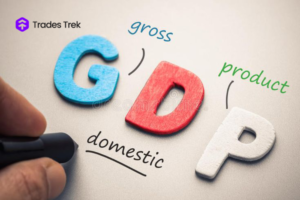The stock market is unpredictable; by purchasing stocks, you could either make a huge profit or incur a significant loss. Does that imply there are no surefire strategies to ensure you get your fair portion of the return then? Since nobody enters the stock market to lose money, we can hear you asking yourself this question. Instead of focusing on long-term return accumulation, most investors pay more attention to the market’s short-term fluctuations.
This post will discuss tried-and-true strategies for ensuring stock returns. If you’re an investor who wants to accomplish that, stick with us through this post.
Let’s define “guarantee” before proceeding with this post. According to The Oxford Dictionary, a guarantee is a formal promise meeting specific criteria. Stock is the main topic here. These tried-and-true methods only guarantee or promise that you’ll make a profit despite market volatility. This explanation means that any investor who follows the guidelines in this article will undoubtedly receive a fair portion of the gains from the stock market.
Beyond knowing what stock to buy and when to enter or exit a trade, successful investing involves other skills. First, it involves using common sense, which implies purchasing all publicly held companies in the country at a discount. By doing this, you can get the full return they produce.
You must have learned lots of principles in investing in the stock market in the stock market. However, one surefire approach to ensure you receive your fair share of market gains is purchasing the index’s portfolio. You can profit from the returns that businesses produce through dividends and earnings growth. Therefore, the only way to ensure that you receive your fair portion of the return is to invest in and keep index funds for a long time.
Owning the stock market for a long period is a winner’s game, but trying to beat the markets is a loser’s game, according to John C. Bogle.
What is an Index Fund?
An index fund is a type of investment product that consists of various successful portfolios and many stocks to replicate the performance of a market sector and generate returns from all the stocks in the portfolio.
Always consider the stock market to be two games running concurrently. The actual market, where genuine cooperation, genuine profit-making, and genuine innovation take place, contrasts with the expectations market, where the expectations or speculation of investors determines prices. The economics, not short-term investing, is important if you plan to own equities for a long time.
How Investment Losses Occur
Most investors are concerned about making some returns but ultimately losing money. So what is the issue? The problem is that fund managers have a sneaky way of eating at investors’ capital returns, which at first glance may not seem like much but add up over time. An index fund offers the assurance of a return on investment in place of investing in a mutual fund that is actively managed.
Higher returns are usually required for lower costs. But, despite the costs spent, returns tend to decline as trading grows, according to Warren Buffet. So why do you pay financial managers and advisers so many fees to manage your money if more money moving causes a drop in return?
You must realize that the business pays managers to manage your funds. The money they receive in the shape of fees is money you are paying out of your pocket. The paradox of paying an active manager to handle your fund is that while they are meant to assist you in increasing your profits, they increase your expenses. Other actively managed funds are successful and outperforming the market, but these are only a handful. Owning firms and taking advantage of dividends and capital growth are key components of a successful business.
Because actively managed funds sell during the year and taxes must be paid on each gain, taxes are incurred. On the other hand, index funds are fixed investments that are not bought and sold all year long. Tax benefits for investors increase with a fund’s level of active management. Index funds don’t have to pay as much in taxes because the management is only needed to match the index.
What worked a few years ago could not function today due to the market’s quick changes. For instance, the real estate sector might sometimes be doing better than the energy sector. So why not own the market and get profits from all stocks rather than pick a few stocks?
When investing in mutual funds, many variables need to be considered. Short-term fluctuations, management. Successful mutual funds can provide returns of more than 50%. But for how long can it be maintained?
There are fewer unknowns when tracking the overall performance of an index fund. You will receive a fair part of the stock market return if you own all market sectors and have a diversified portfolio of index funds. When one market segment underperforms, many segments will fill up the gaps, minimizing the impact on your portfolio.
Real wealth is created through long-term investments in businesses rather than by making quick purchases or sales. In the long run, the strategy might occasionally be effective, but it needs to be more maintainable.
Which Index Fund Should I Purchase?
Investing in the least expensive index fund can make the most money. In contrast to actively managed mutual funds, which must consider various aspects, including holdings, cost, and management, index funds can be chosen based on their cost, making this decision simpler.
Then, How are Stock Returns Produced?
The dividend yield is the source of stock return generation.
Yield to Dividend
The dividend yield is one factor contributing to stock return generation. The financial ratio, known as the dividend yield, gauges how much money is distributed to shareholders about the share’s market price. It is calculated by multiplying the outcome by 100 and dividing the dividend per share by the market price per share.
A company with a high dividend yield distributes a sizable portion of its profits as dividends. A company’s dividend yield is always compared to the industry average for that company’s sector.
Invest in businesses that offer quarterly or annual dividend payments to make money. Dividends can be extremely effective because they can be reinvested and utilized to buy further shares, requiring less of the investor’s resources to grow equity holdings. Others rely on yields to generate an income stream from their investments.
To Sum Up
You should put money into a cheap index fund to ensure you get your fair part of the stock market return. Even if you want to invest in mutual funds successfully, you should still do your homework to understand their costs and historical performance. You are investing in the stock market to earn returns, not to lose money.




